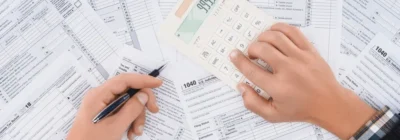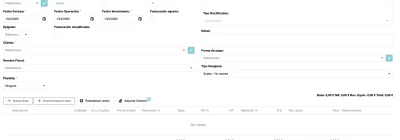Deferred payment of personal income tax for self-employed workers in Spain
Patrick Gordinne Perez2024-01-05T08:32:25+00:00The possibility of taking advantage of a deferred payment of personal income tax for the self-employed is an alternative that, in many cases, can provide tax relief. This possibility exists in our tax system, but it is important to know the requirements and the consequences, in order to correctly assess the circumstances in which it will be really advantageous for a self-employed person.
Payment of personal income tax for the self-employed
The payment of personal income tax (IRPF) is a crucial aspect of the fiscal management of the self-employed in Spain. This tax is levied on the income they earn from their professional or business activity, after deducting allowable expenses. Self-employed persons are obliged to make instalments of personal income tax throughout the year, generally on a quarterly basis. The IRPF instalments are 20% of the quarterly profit for the corresponding period. They are paid every year on 30 January, 20 April, 20 July and 20 October. If it falls on a Sunday, it is paid on the following day.
At the end of the tax year (between May and June of the following year), the self-employed must submit an income tax return, detailing all income and expenses for the year. This declaration determines whether they have overpaid or underpaid. If they have overpaid, they can receive a refund; if they have underpaid, they must pay the difference.
It is important for the self-employed to keep detailed records of their income and expenses in order to correctly calculate their tax obligations and take advantage of available deductions.
What is the deferred payment of income tax for the self-employed and what conditions are required?
Deferred payment of personal income tax for the self-employed in Spain is a possibility that allows self-employed workers to defer payment of their tax debts in situations where they are unable to pay in full at the required time. This system seeks to offer temporary relief to self-employed persons facing financial difficulties, allowing them to meet their tax obligations in a more manageable way.
Deferred payment involves splitting the personal income tax debt into several instalments, payable over a set period of time. The process begins with the submission of an application to the Tax Agency, in which the self-employed must detail their financial situation and justify the need for the deferral.
Conditions and requirements
- Justification of the financial difficulty: The self-employed must demonstrate that they face temporary financial difficulties that prevent them from paying the tax in a single payment.
- Term and amount: Generally, deferrals are granted for a maximum period of :
- 12 months, until 14 April 2023
- 24 months from 15 April 2023
for applications exempt from providing guarantees when the total amount of outstanding debt exceeds 3,000 euros.
Interest on late payment: Deferred payments are usually subject to interest on late payment. This means that the total amount payable will be slightly higher than the original amount of the debt.
| Period | 2019 | 2020 | 2021 | 2022 | 2023 |
|---|---|---|---|---|---|
| type (%) | 3,75 | 3,75 | 3,75 | 3,75 | 4,062 |
- Compliance with previous deadlines: Normally, the self-employed are required to have been up to date with their previous tax obligations in order to be eligible for a deferral.
Deferred payment of personal income tax is a useful tool for the self-employed, but it is important to approach it with a clear understanding of its implications and to ensure that you comply with all the requirements and conditions stipulated by the Tax Agency.
Disadvantages of taking advantage of the deferred payment of income tax for self-employed workers
- Interest on late payments: While deferred payment can ease the immediate financial burden, it often carries interest. This means that you will end up paying more than you originally owed.
- Non-guaranteed approval: A deferral request is not always accepted by the tax office. If it is rejected and the payment deadline has passed, you could face penalties for late payment.
- Long-term financial commitment: Deferral turns your tax debt into a long-term commitment, which may affect your future budget and financial planning.
- Potential impact on creditworthiness: Having outstanding tax debt, especially for an extended period of time, could negatively affect your credit rating or creditworthiness.
- Restrictions on future deferrals: If you frequently use deferral, the Tax Agency may limit or deny your future deferral requests.
- Risk of debt accumulation: If not managed properly, deferral can lead to an accumulation of debts, especially if you face financial difficulties in later years.
- Terms of the agreement: The conditions of the deferment agreement can be strict and, if they are not met, you could incur penalties.
How to start the deferral process
To contact the Tax Agency and request a deferred payment of personal income tax if you are self-employed in Spain, you can follow these steps:
- Online access: Log in to the Tax Agency portal (www.agenciatributaria.es). Use your digital certificate, electronic ID or Cl@ve PIN to access the procedures section.
- Telephone: Call the Tax Agency’s customer service number specifically for the self-employed. You can find this number on their website.
- In person: Make an appointment at your nearest Tax Agency office to deal with your case in person.
- Preparation of documents: Before contacting them, make sure you have all the necessary documentation at hand, such as your personal income tax return, financial information and justification of the need for the deferral.
At Asesoría Orihuela Costa we help you to request a deferral of IRPF payment, and we also evaluate all your obligations to reduce the tax pressure on your company.






